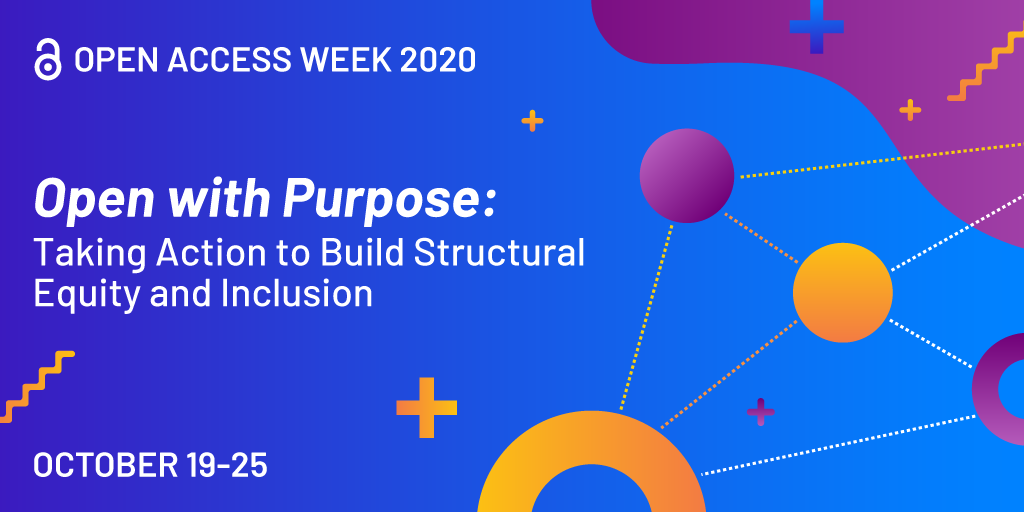International Open Access Week 2020 is upon us, and the need for equitable access to research has taken on a new sense of urgency. Every year, libraries celebrate Open Access week to bring attention to issues related to scholarly communications. The theme, “Open with Purpose: Taking Action to Build Structural Equity and Inclusion” is intended to get us thinking about the ways our current systems marginalize and exclude.

This year, we celebrate amidst a pandemic that has completely changed how we do things. Usually, immediate access to scholarly research isn’t on many people’s minds. But, research about COVID-19 has made clear the importance of open access to research. This urgency has caused several publishers to open up their content related to COVID-19 and may be accelerating the shift towards open access as the default for scholarly publishing.
Making research about COVID-19 openly available speeds up the research process by allowing more people to access the data they need to find a solution to this crisis. The CDC, UNESCO, and National Institute for Health have all compiled open access information about COVID-19 for research and educational use to assist in this effort.
However, making research available for free is not enough. In her blog post “Opening up the Margins”, April Hathcock writes, “there are so many ways in which open access still reflects the biased systems of the scholarship in which it’s found, even as it can be used to open up scholarship at the margins” (Hathcock, 2016). Open access is still exclusionary if it maintains practices that privilege the publication of white, western, academic voices and centers those perspectives.

It is no secret that COVID-19 disproportionately affects African-Americans. A quick search of “COVID-19 and African-Americans” in Google Scholar reveals tons of studies demonstrating that fact. While the pandemic has made visible the need to address social inequalities that lead to higher vulnerability in black populations, these problems are not new and the solutions cannot be found under a microscope. The people living in these areas are not the ones conducting research, and yet their perspective is invaluable to knowing how the lived experiences of oppression contribute to this tragedy.
Researchers should not treat people as objects of study but as full people whose susceptibility to the disease cannot simply be linked to genetics. To address the pandemic, we must center the experiences of those most vulnerable. With open access advocacy, we must make sure to include voices that aren’t traditionally acknowledged as scholarly and recognize how those experiences inform the research process.
“Open with Purpose” means mindfully and intentionally creating systems that invite people in. The COVID-19 pandemic has highlighted the urgency of this movement, but the social, economic, and political viruses of racism, sexism, classism, etc. had already made this urgency visible to those who are the most marginalized. Open systems need to not only unlock research, but also to question the very structures that keep it closed to certain people in the first place and rebuild them into something better that can more fully address the world’s problems.


